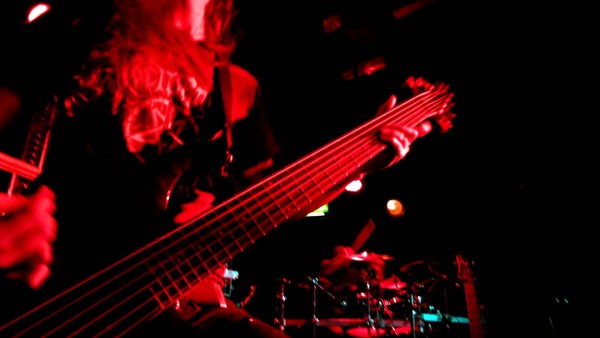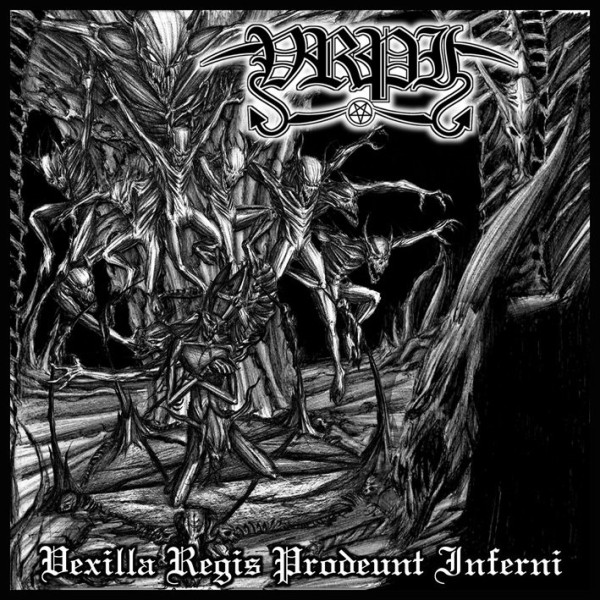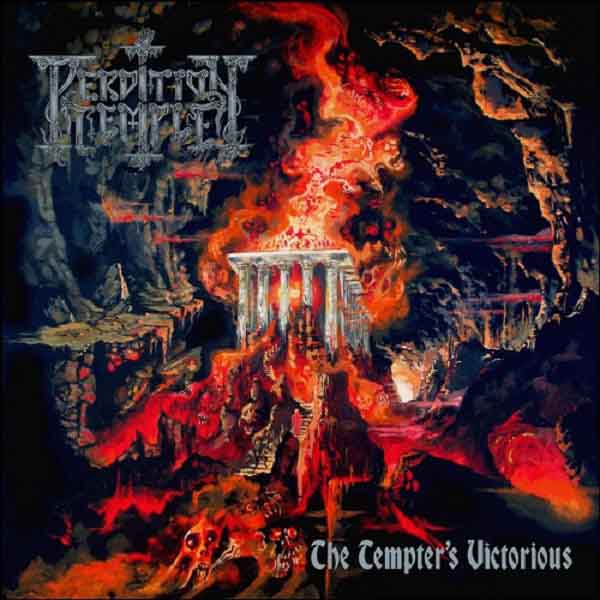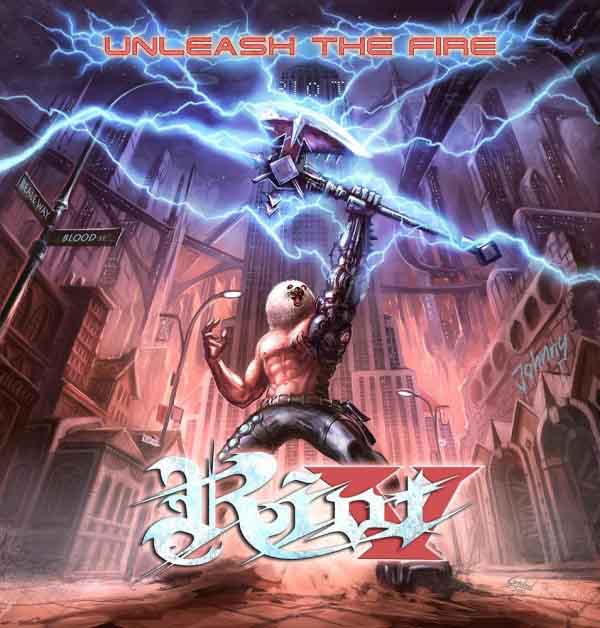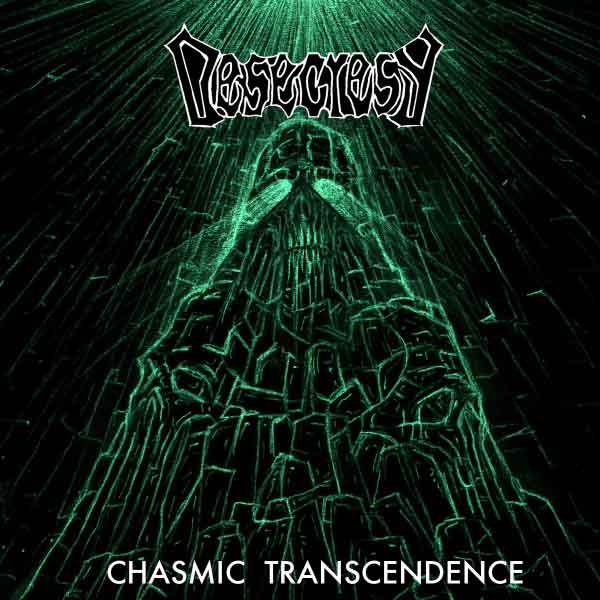Post-metal, a dirty word in knowing circles, can and should be applied to Gorguts‘ classic Obscura. Post-metal is an offshoot of post-modernism, a school of thought that attempts to reject overarching structural meaning and belief in greater narratives. To the post-modern mind, existence and experience consist of pluralities, splintered into fiercely individualistic cells prone to subjective rule, and inimical to any attempt at establishing a universal system of knowledge. Under this philosophy, adherence to a common-law guidebook serving as a framework for value judgments would amount to giving tacit approval to an authoritarian scheme of things.
The post-modern mind rebels against the idea of linear progress and containing edges. Instead it chooses to break free of tradition and to chase the open-ended horizon, giving wing to its often reactionary attitudes; in fact, it can be said that post-modernism, as an approach to inspecting knowledge and the various forms it finds expression in, exists only to uproot convention. It seems to lack a defining purpose of its own, mired as it is in its perpetual obsession to bring down pre-existing ideological superstructures.
However, in the absence of a time-honoured, governing set of principles, can ambiguity be far away? Can a severing with tradition with no motive other than just the severing and that alone ever have an impact beyond the momentary fascination that novelty engenders? A need to improve on boxed-in ideas is natural but is doing so by gleefully discarding much of what goes into the making of the original idea any improvement at all?
The original idea, as metal goes, is as much structural as it is ideological. There are a few qualities that are common to how all true metal should be constructed.
- Melodic contiguity: All forms of metal, even the harshest strains, are inherently and recognizably melodic in nature. This means that the individual phrases that make up a metal song obey cohesiveness, as tenuous as it may seem at times. Though individual phrases are often in different keys, it is paramount that they share the same musical space.
- Movement towards a discernible and logical conclusion: This is the will to motion previously outlined in these pages. Metal’s roots in traditional story-telling with a beginning, a middle, and an end, are not to be forgotten in eager exchange of a need to experiment. There has to be a gradual ascent, or a plummet as it were, towards an ultimate punctuation. Though various approaches can be used towards achieving this, playing for time in false hope of creating mood, while using ideas containing little intrinsic worth, is anathema to metal.
- Rhythm section to assume a strong yet only supporting role: Metal is a predominantly lead-melody oriented form of music. Bass and drums are integral to creating a fuller sound but should only be viewed as swells on an ocean on top of which riffs and songs float. Often, swells rise and raise their load with them, but this hierarchy in relations is crucial and is to be preserved.
- Atmosphere created not through textural embellishments and quirks but as a by product of composition: All claim to that shady word “atmosphere” should come from immanent qualities in the way the music is written. Metal does not need overt experimentation with harmonics or tone if these asides are incapable of holding together on isolated inspection.
- Awareness that all forms of groove play to a far baser inclination in the mind’s analytical apparatus. They can be enjoyed on a case-by-case basis but are not something to be eagerly sought out or encouraged in metal.
- A keen comprehension of repetition as device: Repetition is to be used as steadily outward-growing eddies that take a song to a different place, yes, but one that maintains a tangible relation to the place left behind. Individual components within the repeating phrase should have some emotional consonance and not serve as mere padding.
- Conscious realization that metal is in fact composed music and not free jazz.
How does Obscura, universally regarded as Gorguts‘ creative zenith, fare in context with these? On an individual song basis and on an album-wide scale, Obscura flouts more than a few of these observations. Obscura‘s sound is a swirling melange of dissonant tones under cyclic orientation, created on a wildly giddy bedrock of percussion. Conventional melody is used not as the driving force behind the songs heard on this album, but as ballast to the band’s almost painful need to expand the template of extreme metal prevalent till then. Guitarists coax unnatural sounds out of their instruments, resembling those made by scurrying creatures of the night, and mold them into a form of strange melody not without appeal, but on honest reflection little more than an outlier gimmick.
While not all associations with the band’s previous classic Erosion Of Sanity have been severed, Obscura greatly favours repetition of its themes, themes that at times fail to register as true motifs, often to the point of tedium. Where the band’s younger work had irrepressible momentum on its side, they now seem stuck in a rut of their own making with no clear vision of how to extract themselves from it. Songs regularly lapse into the kind of navel-gazing that is so aggravating in modern technical bands, in hindsight obviously influenced by this album. The most obvious example of this would be ‘Clouded‘, an idea that would be deemed insufficient even for the most basic of interludes but here stretched beyond all limits of endurance.
It would be disingenuous to suggest that Obscura detonates the core of music entirely, contrary to epithets of “chaotic” and “cacophonous” regularly appended to its descriptions. There is a kind of twisted logic to these songs but it is so far removed from what has gone before in the metal canon that it barely, if at all, qualifies as metal. Perhaps the album’s greatest failing as a purportedly metal album is in the lack of a human aspect. One would have to project really hard to glean any kind of meaningful emotion from these songs, uniformly monochromatic, mechanized, and without hope, or rage, as they are. In its abundant jagged outcroppings and in its constant search for the next unorthodox detour, Obscura
What essence, then, does Obscura have to relate?
35 CommentsTags: death metal, gorguts, indie rock, metalcore, post-metal, postmodern metal, postmodernism
